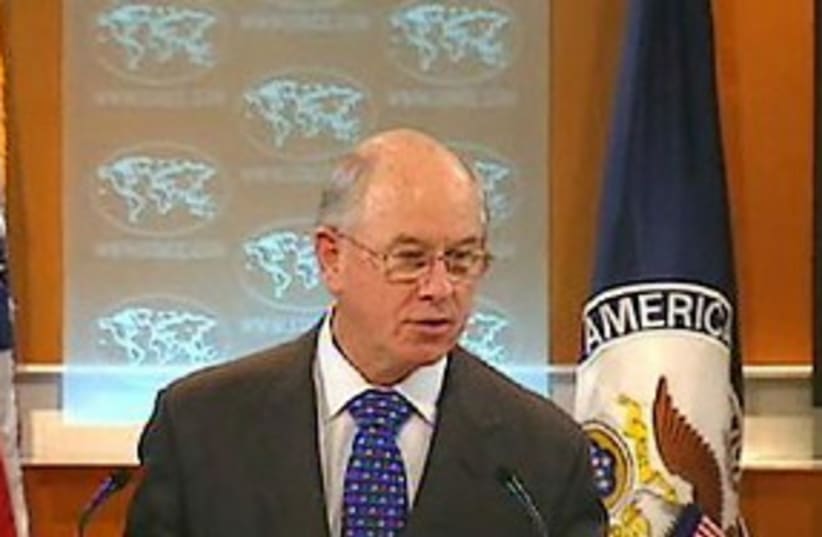“It won’t draw international attention away from the issues regarding Iran’s nuclear program,” Crowley stated.RELATED:WikiLeaks: Iran can attack Israel within 10-12 minutesIran smuggled hundreds of rockets to Gaza in 2010He added that Iran's nuclear enrichment activities violated six United Nations Security Council resolutions.European diplomats who were invited said they were unlikely to accept the invitation, if at all, until after the next round of talks on Iran's nuclear program, expected to be held in Istanbul at the end of this month.In a letter made available Monday to The Associated Press, senior Iranian envoy Ali Asghar Soltanieh suggested the weekend of Jan. 15 and 16 and said that meetings "with high ranking officials" are envisaged.While no reason was given for the timing of the offer, it comes just weeks before Iran and the six powers follow up on recent talks that ended with agreement on little else but to meet again.The new round between Teheran, and the permanent UN Security Council members — the US Russia, China, Britain, France — plus Germany, is tentatively set for Istanbul, Turkey in late January.It is meant to explore whether there is common ground for more substantive talks on Iran's nuclear program, viewed by the US, and its allies as a cover for secret plans to make nuclear arms — something Teheran denies.Instead, the Islamic Republic insists its uranium enrichment and other programs are meant only to generate fuel for a future network of nuclear reactors.
US: Iran's invitation to nuclear plants is 'clever ploy'
Iranian envoy Ali Asghar Soltanieh invites EU members, Russia, China and other regional allies to visit nuclear facilities; European diplomats say they are unlikely to accept offer.

“It won’t draw international attention away from the issues regarding Iran’s nuclear program,” Crowley stated.RELATED:WikiLeaks: Iran can attack Israel within 10-12 minutesIran smuggled hundreds of rockets to Gaza in 2010He added that Iran's nuclear enrichment activities violated six United Nations Security Council resolutions.European diplomats who were invited said they were unlikely to accept the invitation, if at all, until after the next round of talks on Iran's nuclear program, expected to be held in Istanbul at the end of this month.In a letter made available Monday to The Associated Press, senior Iranian envoy Ali Asghar Soltanieh suggested the weekend of Jan. 15 and 16 and said that meetings "with high ranking officials" are envisaged.While no reason was given for the timing of the offer, it comes just weeks before Iran and the six powers follow up on recent talks that ended with agreement on little else but to meet again.The new round between Teheran, and the permanent UN Security Council members — the US Russia, China, Britain, France — plus Germany, is tentatively set for Istanbul, Turkey in late January.It is meant to explore whether there is common ground for more substantive talks on Iran's nuclear program, viewed by the US, and its allies as a cover for secret plans to make nuclear arms — something Teheran denies.Instead, the Islamic Republic insists its uranium enrichment and other programs are meant only to generate fuel for a future network of nuclear reactors.